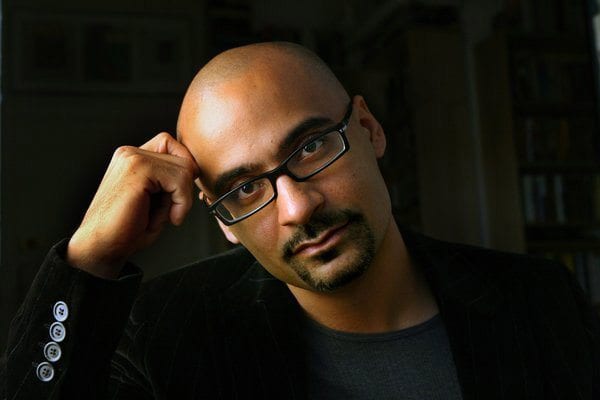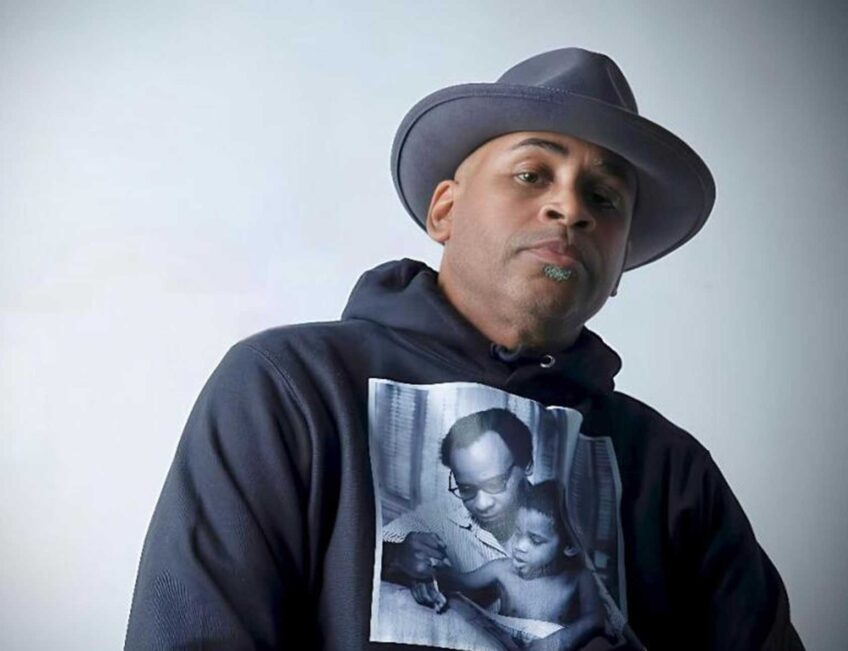Junot Diaz, MIT professor, writer pushing for equality in Dominican Republic

Pulitzer Prize-winning novelist and MIT Professor Junot Diaz helped focus attention on the plight of Haitian-descended Dominicans who will lose their citizenship due to a September ruling from the Dominican Constitutional Court. In November, he co-authored an op-ed critical of the court sentence in the L.A. Times along with Haitian American novelist Edwidge Danticat and other Dominican and U.S. writers.
Last month, Diaz drew fire from a group of Dominican intellectuals and a Dominican government official who threatened to sue Diaz for defamation for telling the local press that the Dominican Republic’s politicians are “corrupt” and “thieves.”
The Banner caught up with Diaz last week for a discussion about the Dominican court ruling — referred to as the “sentencia” — and his activism on the issue.
Why do you think it was important for you to weigh in on the issue of the Dominican court’s ruling?
I’m an activist from my youth. I came out of radical progressive politics. I came up seeing and participating in the anti-apartheid movements. I’ve been involved with the rights of Haitian-Dominicans for quite some time.
Me and Edwidge Danticat wrote an op/ed in the New York Times back in 1999 [“The Dominican Republic’s War on Haitian Workers”] and look at how little has changed? I believe that one needs to stand up against injustice — what else are these lives good for if not for helping each other break our chains?
But most importantly it’s important for people to know that there are other Dominican traditions than the one being promulgated by these cruel ultranationalists in the D.R. — ones that are pan-African and are about human rights and social justice and resist the arbitrary inhumanities mobilized by the powers-that-be.
What role do you think Dominican ex-patriots should play in Dominican politics? Here in Boston, many of them vote and fundraise for political candidates. Do you think expats have any special obligation to weigh in on domestic and international issues involving the D.R.?
I do believe the diaspora can play a key role in this debate, in this struggle. We represent an enormous economic, cultural and political bloc, and can use this as leverage to force the government to pull back from this madness. And I, for one, believe that this fight has special significance for those in the diaspora.
After all, we who have suffered so much as immigrants in the U.S., who know what it is like to be attacked for the fact that we’re newcomers, have an obligation to defend and support the rights of immigrants back home on our Island. Who knows better than we, who are the Haitians of the U.S., what it is to be a Haitian in the D.R? If you believe in the D.R. the way I believe in it, if you love it the way I do, then you too would want to see it free from the corrupting suffocating influence of a cruel, self-serving political elite that mobilize racist xenophobia to cover up for their own kleptocratic practices.
The group of Dominican intellectuals accuse you of not understanding the “content and reach” of the court ruling. In hindsight, do you think you missed anything?
That’s bull criticism, that those of who are opposed to the ruling didn’t read it, that we don’t understand it. What our detractors seem to miss is that we did read it and we do understand, but we just disagree with it with all our hearts. It’s called dissension, but this is something that a lot of Dominican ideologues don’t seem too comfortable with. Did I miss something about the ruling?
I read it all — repetitive to the point of inanity — and discussed it at length with my group of fellow Dominican scholars and activists, many of us who are lawyers and policy heads, and we were in turn briefed by lawyers and political scholars who specialized in this sort of thing.
But really we didn’t need any of that extra prep — both the letter and spirit of the ruling are crystal clear. You and I might miss a comma, but the injustice of it is patent. It’s like the apartheid regime — do we need to study it deeply in college, which I did, to form an ethical opinion on its operations? There are some truths and some injustices that are self-evident and this is one of them.
Do you know whether the other authors got hate mail too, or are the defenders of the court decision singling you out?
Let’s not focus on the personal attacks directed at us. That obscures the issue — the inhumanity of this ruling. This isn’t about whether or not I’m this or that — that’s just a ruse to shift the focus from the abhorrent sentencia and the racist divisive madness that is has unleashed.
In effect it has served the political elites well. Dominicans are now so busy fighting each other, we’re not paying attention to our real enemies that are destroying the nation with their corruption, their thievery, their anti-democratic practices and cronyism, their impunity and complete disregard for the rule of law.
In what ways has this controversy informed your understanding of the Dominican Republic? Were you surprised by the court ruling or the reaction to the letter you co-wrote with the other authors?
Certainly I was surprised that by the sentencia and surprised by the odious lengths that the PLD [the ruling Dominican Liberation Party] and its partners have gone to silence the critics of the sentencia. I was also surprised by how quickly the PLD wrapped its self-serving ruling in the flag of nationalist pride. Suddenly the sentencia was about Dominican sovereignty, and not about the derangements of a small sector of political elites in the D.R.
I was surprised by how the same pueblo that was protesting the ruling consensus exactly one year ago would fall for the cynical manipulations of these elites. But I was surprised as well at how the Diaspora has stood up to these bullies and xenophobes. As for these attacks on the critics of the sentencia, we cannot let ourselves be distracted by the calumnies of neonationalist apologists — the first victims of the sentencia are back home on the island, paying the consequences of this madness.
You have talk to one Dominican in the Capital or Baní who hasn’t been able to get their papers in years, who’s been trapped in this evil limbo. Their unnecessary pain far outstrips anything I can communicate to you here. And that is the reason we fight. No one should have to live like this. Here or on the island. No one at all.







